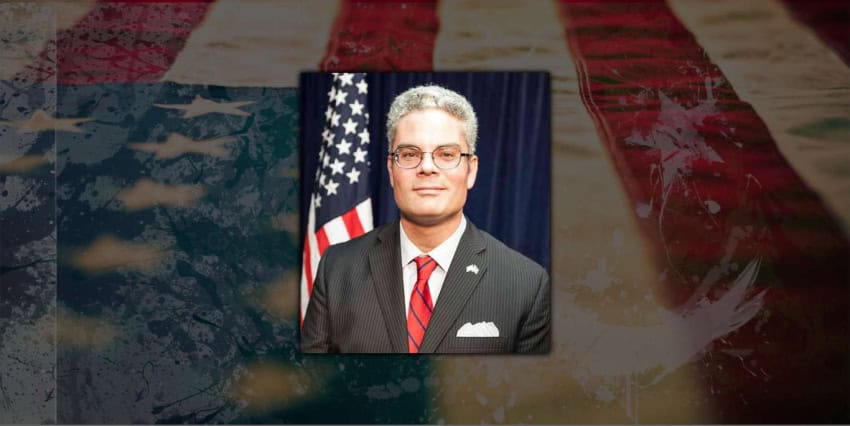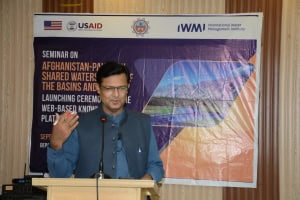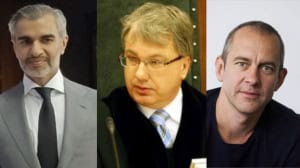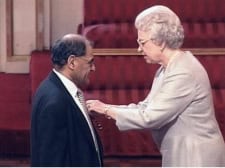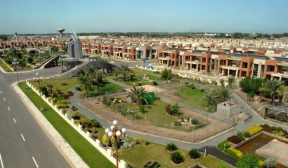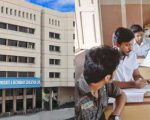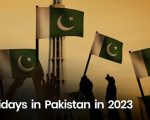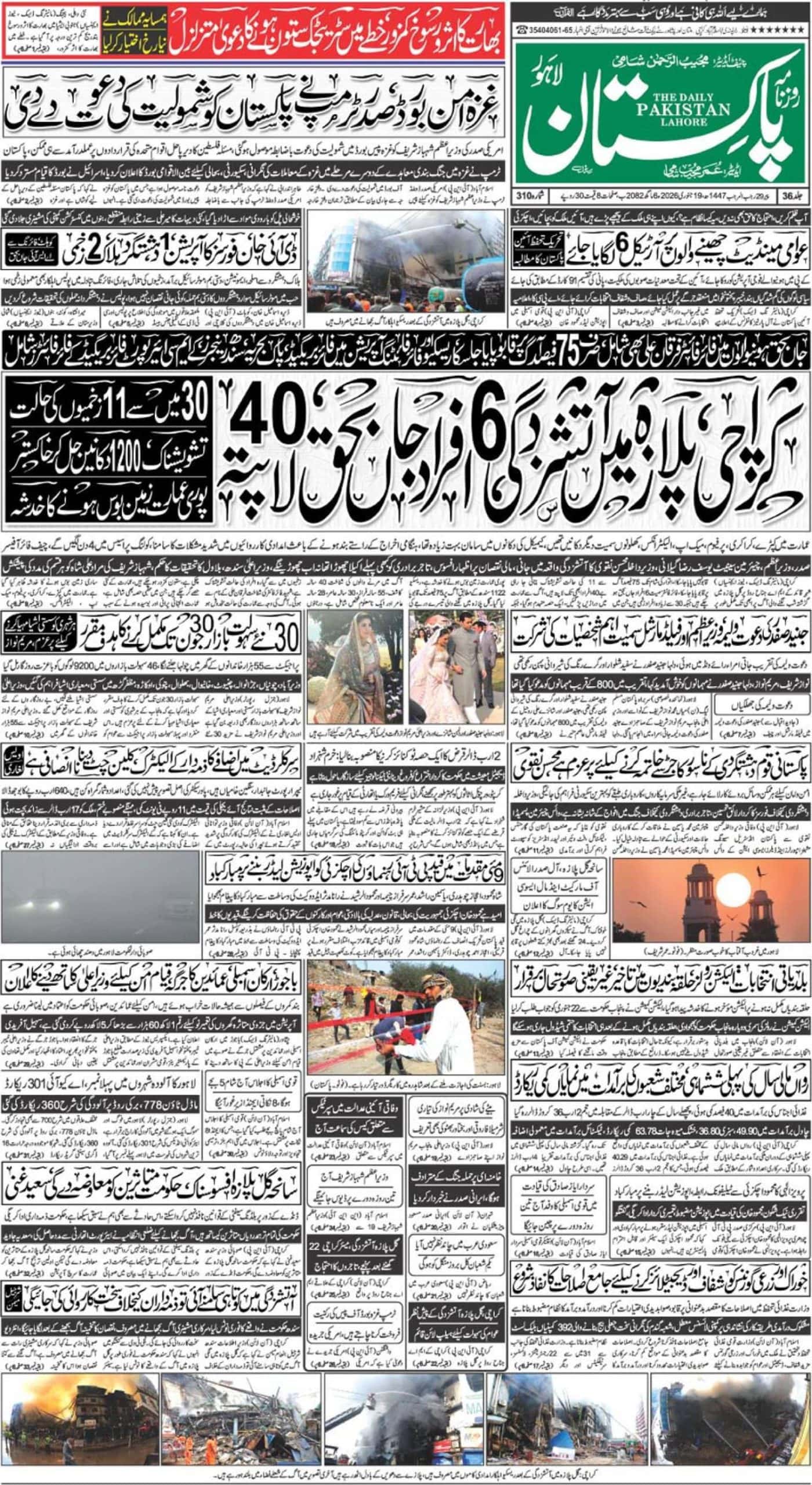“Overcoming energy shortage would make Pakistan one of the fastest growing economies in the world.”
“Zarb e Azb played pivotal role in restoring the state’s authority.”
“People here have outstanding work ethic and a tremendous thirst for education.”
“Shahbaz Sharif’s leadership is the best I have seen in my career.”
Lahore (Umer Shami and Usman Shami) – “The US is fully determined to back democracy in Pakistan and help it to sustain and mature. Sustained democracy is vital for a bright future of Pakistan. People need to understand that democracy requires time. If you look at India or any other democracy in the world, you would realize that it’s not a one-day process, they have got better at it because they kept practicing it”. These views were expressed by the US Consul General in Lahore, Mr. Zachary V. Harkenrider, in an exclusive farewell interview with Daily Pakistan. He added, “Democracy provides a massive steam vent for pressures in the society through debate, dialogue and even public demonstrations. It also enlarges the space for civil peaceful debate no matter how wide the differences are”. He expressed hope that prolonged democratic discourse will further enhance this space in Pakistan and would marginalize extremist tendencies.

Mr. Herkenrider is a veteran diplomat with vast experience, spanning over a decade, of working in developing countries. He came to Pakistan in July 2013 as Deputy Political Counselor at the US embassy in Islamabad and assumed charge as the Consul General, Lahore in May 2014. He will relinquish the charge as Consul General next month, before his departure he took time out of his busy schedule to reflect upon his time in Pakistan and the future of the relationship between the two countries.
“During my three years stay I have seen Pak-US relationship improve steadily and move in an upward trajectory. Every relationship is subservient to national interests of the engaging parties; we have had storms in our relations with India, China and even Israel, however, it’s important to find ways to work together in areas of discord, and we are already doing that with Pakistan.”
Mr. Herkenrider highlighted the importance of people to people contact for the durability of relationship and efforts undertaken in this regard. He pointed out that Pakistan has one of the highest funded Fulbright program in the world and more than 2400 people were sent to the US over the last fiscal year under different exchange programs. According to him, there has been an increased focus to facilitate interaction between business people from both countries. In June last year 4th annual US-Pak business opportunity conference was organized in New York City where businesses from the fields of Fashion, Healthcare, Information and Communications Technology and Agriculture were brought together with the objective of facilitating business-to-business matchmaking, he added.
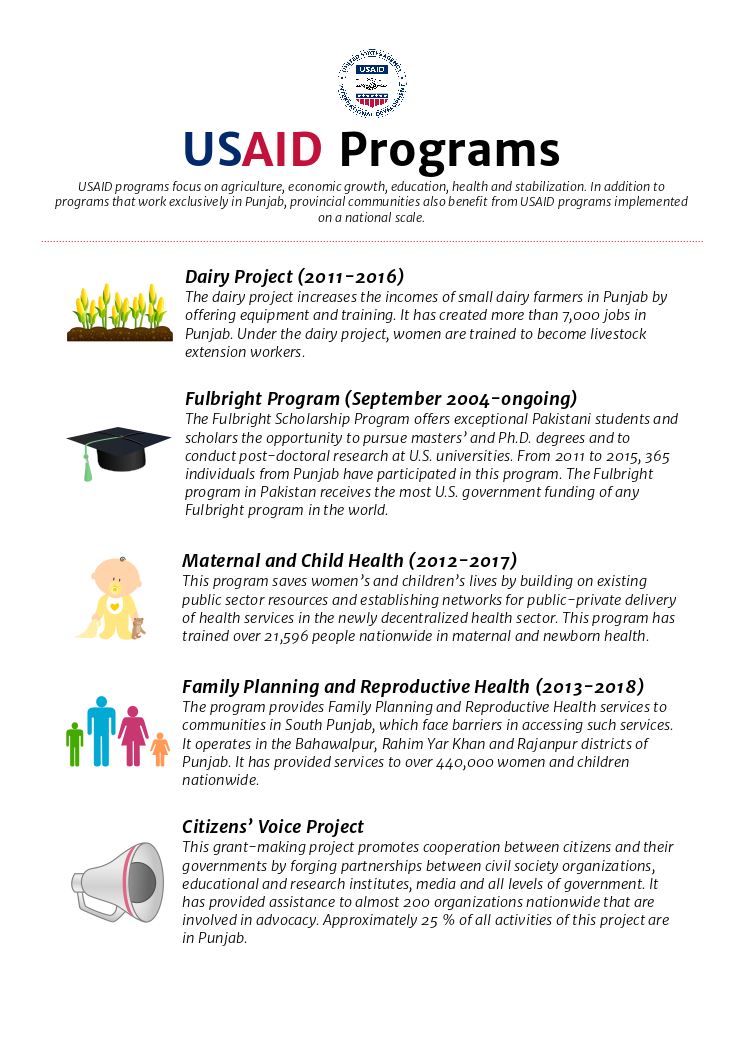
Responding to a question, the Consul General expressed optimism about Pakistan’s economic future. He pointed out that if only three LNG and coal projects, which are already under construction, are completed they would add around 5000 MW by the end of next year, almost equivalent to the shortfall in the system. As per estimates by economists, overcoming the energy shortage would drive up Pakistan’s growth rate by around two percent, thus making it one of the fastest growing economies in the world. According to the US consul general, USAID is urging power distribution companies to digitalize their systems; a pilot project using 23,000 digital meters has been implemented in this regard. Over 100 million dollars have been diverted towards improvement of distribution systems resulting in saving billions of rupees of losses for distribution companies. Load management System implemented by the USAID has enabled the power companies to overcome unscheduled load shedding. “They are now better equipped to plan power outages thus resulting in 94% reduction in unscheduled load shedding and more than 1200 MW electricity been saved”, he added emphatically.
The Consul General applauded Pakistan’s resolve against terrorism and extremism and recognized the achievements in this regard. He however also cautioned against pre mature celebration and stressed that such efforts need to be sustained for a long time.
“I think one of the things that most impressed me about Pakistan’s evolution in the last three years is the way in which public debate and public consensus on combating and countering terrorism and extremism have all moved along very positive lines”, explaining the reasons for this shift, he added “People saw outrageous terrorist attacks against civilians being perpetrated by the Pakistani Taliban and it became abundantly clear to everyone that this was their fight and that they have to take ownership of it by engaging forcefully. Todays Pakistan is much more united and can boast of much greater consensus on this issue compared to the time when I arrived here.”
He also applauded the success achieved in Zarb e Azb, and its pivotal role in restoring state’s authority. He also acknowledged that there is a greater resolve at state’s level as well to counter the issue of terrorism and extremism, highlighting that the National Action Plan appropriately articulated many dimensions of countering such threats.
The Consul General agreed with the point of view expressed by Pakistan’s security officials dismissing any footprints of ISIS in Pakistan, however, he warned that some local extremist elements might want to derive benefit by adopting the franchise of ISIS- a danger that is currently being faced by most Western nations as well. “The process of self-radicalization, made possible by the proliferation of social media and internet, is another area which needs to be dealt with”, he added.
Responding to a question about his experience of serving in Pakistan, the Consul General responded, “Before I came to Pakistan, after having served in India and Afghanistan, I knew of it mostly through the eyes of the Afghans and Indians which you can imagine are not always charitable or a least fully well rounded. However, I came here with an open mind and learned a lot, and most of it is extremely positive. The people here have outstanding work ethic, a tremendous thirst for education, job training and a hunger not only to work hard but also a very keen understanding of entrepreneurial roles. These are among the most essential attributes for any society that hopes to be economically and socially successful in long term and Pakistanis have these in abundance.”
Mr. Herkenrider elaborated that there is a degree of social cohesion and solidarity in Pakistan that sets the country apart form others in the region. This is frequently manifested through philanthropy, I think that is very important, so even if people may not be paying taxes they are very sensuous in giving private aid and that has a positive effect on the society.
The Consul General praised the performance of Punjab’s provincial government and the Chief Minister Shahbaz Sharif’s ability to ‘translate concepts into actions ’. He added, “We often talk about the gap between ideas and implementation in the developing world, I think Shahbaz Sharif’s leadership is the best I have seen in my career in developing world and the quality of leadership he is providing is evident when you drive the roads and streets of Lahore, when you see the horticulture, when you drive the motorway and even when you get on the rural roads. Some people rightly pointed towards lack of focus on social sectors, but that also seem addressed to some extent in the new budget which manifests strong desire to combat the profound challenges of providing education and health services to the people of Punjab.”
The Consul General also revealed that gas turbines being installed by General Electric in three LNG power plants are the most advanced and most efficient in the world, and Pakistan is the first country to have received them. He lauded Shahbaz Sharif’s negotiation skills while pointing out that he saved a lot of taxpayers’ money by negotiating very favorable terms and price with the GE. Mr. Herkenrider also revealed that the average volume of bilateral trade between the two countries is around $5 billion but there is a lot of potential evident from the fact that in one year only General Electric has invested more than a billion dollars in the power sector.
“It is not true that we are against the [CPEC]. It will link Pakistan to the largest economy of the region, which is a great development.”
Reflecting on his time as Consul General in Lahore, Mr Herkenrider expressed that resumption of Consul Operations in Lahore on January 1st, 2015 was his biggest achievement, which helped the diplomats in Islamabad to devise relevant policies, incorporating and understanding the aspirations of people in Punjab, one of the biggest, populous and most important area of Pakistan. He also proudly added that since resumption of Consular activities, several satellite Libraries, have been established in major cities across the province to help students and general public acquire knowledge and education. He also added that through innovative education programs thousands of farmers have been trained to help increase their production, thus resulting in extra income for their respective households.
Mr. Herkenrider expressed his regret at not being able to bring his family to Pakistan due to security reasons, “If they were here, I would have stayed for another year”, he added. He also seemed disappointed at not being able to learn Urdu during his term, thus not being able to directly monitor the ‘very vibrant’ Pakistani media.
The Consul General also expressed his surprise at the interest and knowledge being displayed by Pakistanis in the US elections. “The questions that I get from Pakistanis regarding the US electoral process are very valid and surprisingly of a very high caliber, manifesting a keen interest in US election process.”
Commenting on question regarding future challenges and opportunities faced by this region as whole, he was of the view that economic prosperity of the region lies in more integration. “Peaceful co-existence is a key to a prosperous future”. He expressed hope that Afghanistan will also stabilize in the days to come due to democratic process which is already successfully underway. He also said that US has always strongly backed talks between the Afghan government and Taliban and support all the elements which want to become part of the political process by shunning armed struggle. He said that civil society in Afghanistan has made significant gains over the years and US is playing its roles to strengthen these trends. “Our ultimate objective in Afghanistan is to prepare a community that can function on its own, without support of other countries and coordination of international community. If Taliban think they could take power by force, they are certainly mistaken; the only way for them to re-renter political life in Afghanistan is through non-violence and peaceful dialogue“, he added. Responding to a question about tension along the Af-Pak border, he stressed that this issue is something that is to be discussed and resolved by the two countries bilaterally.
“Relationships with one country really do not impact our strategic partnership with the other.”
Responding to a query regarding recognizing Pakistan as a responsible nuclear partner, he said that nuclear discussions are part of the ongoing strategic dialogues between US and Pakistan and a very important element of mutual discourse. He confessed that Pakistan has shown maturity in handling its nuclear assets in the recent past, a fact also recognized by subsequent US administrations. He also agreed that sub-continent is recognized as nuclear flash point of the world and thus US and international community is desirous of resumption of peace talks between both the countries. Commenting on India and Pakistan’s bid for Nuclear Suppliers Group’s membership, the Consul General said that NSG memberships are dealt on case to case basis, US supporting India on this matter is nothing new, in fact it dates back to 2010. “However relationships with one country really do not impact our strategic partnership with the other”, he said alluding to the perception harbored by some that on nuclear issues India is given preference.
He also refuted the commonly held perception that United States is opposed to China Pakistan Economic Corridor (CPEC). “It is not true that we are against the project. It will link Pakistan to the largest economy of the region, which is a great development. We have, in fact, held talks with China to discuss matters where we could help and cooperate for the success of this project.”
When pointed out that Iran is also part of the regional bloc but still due to lifting of partial sanctions, economic integration of the region faces hurdles, the CG said that US is committed to its deal with Iran, in case Iran fulfills its part of the bargain on nuclear issue. He also explained that there are certain sanctions on Iran which predate nuclear sanctions and relate to other matters also. He advised businesses looking to conduct business with Iran to check the status of sanctions before proceeding forward. He pointed out that some of the sanctions have been lifted, but others on certain businesses and entities imposed specifically by the US still remain, therefore, businesses should carefully choose the companies they desire to work with.

